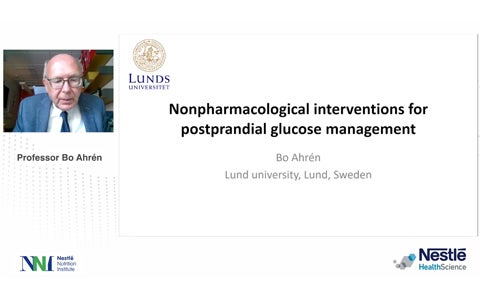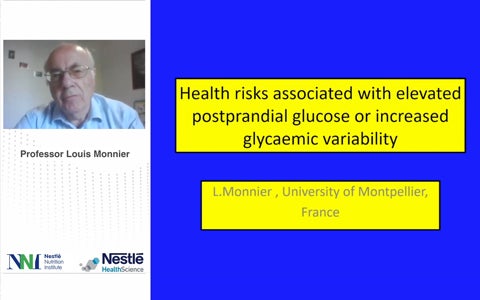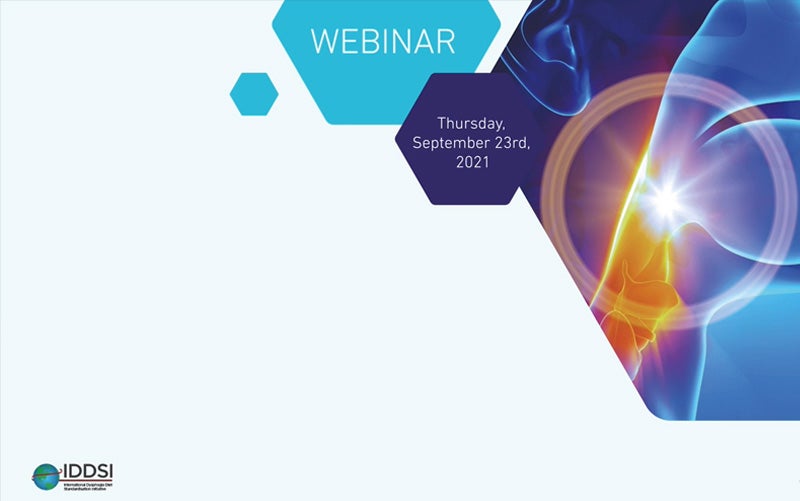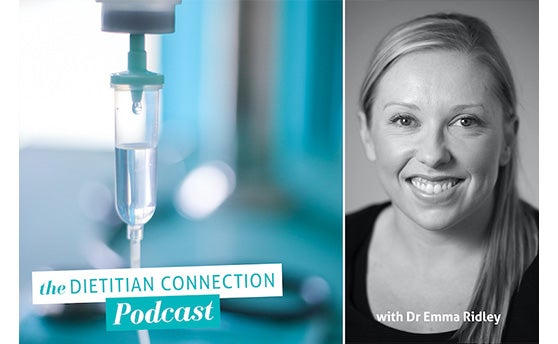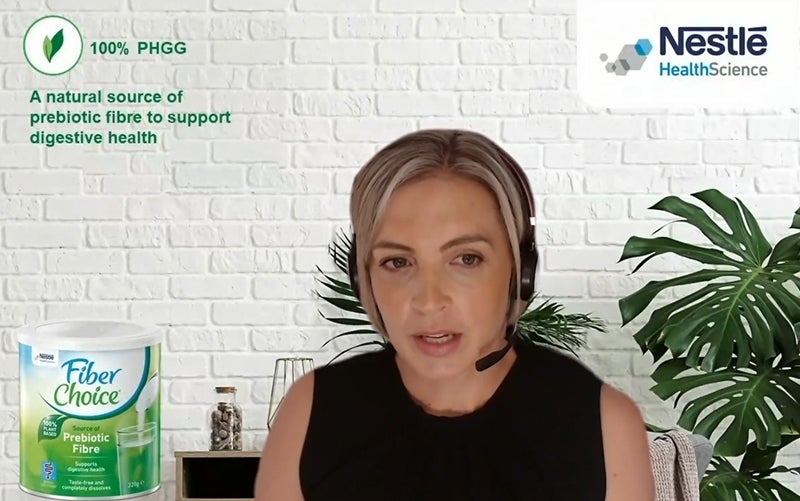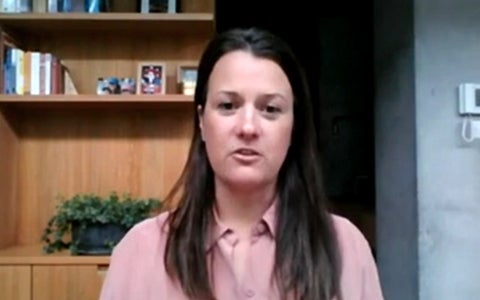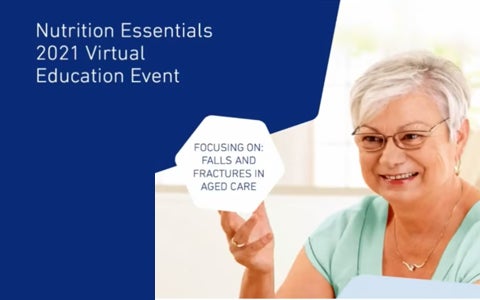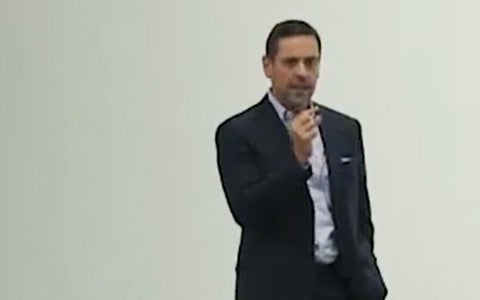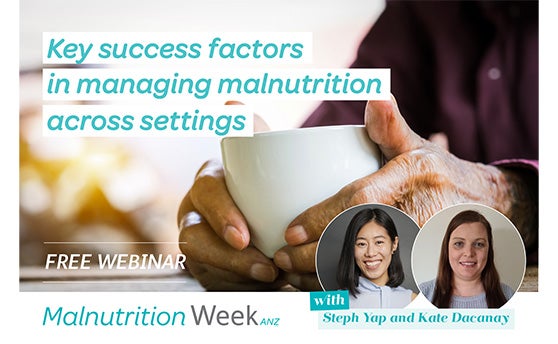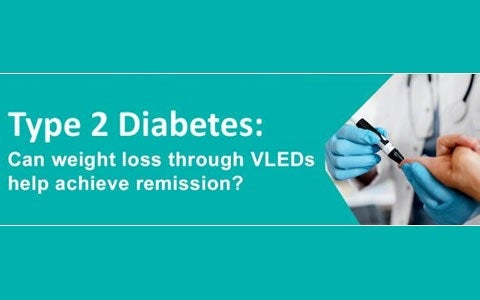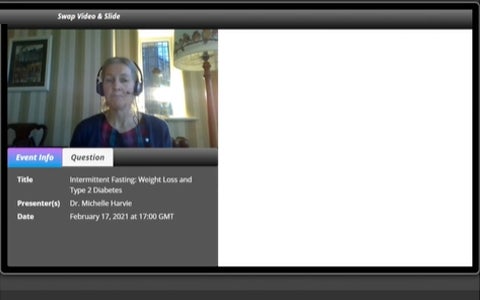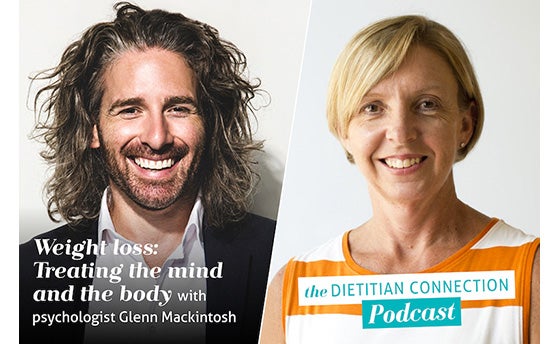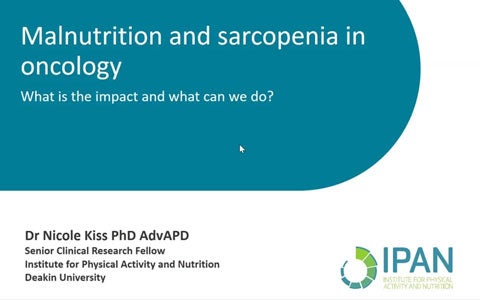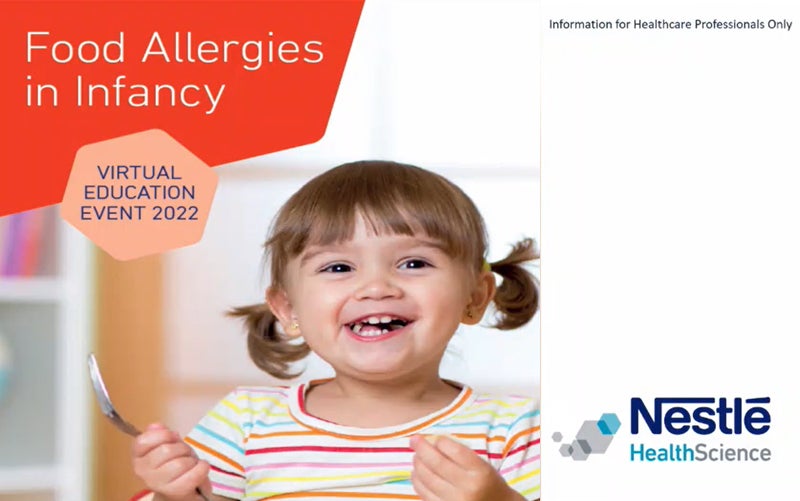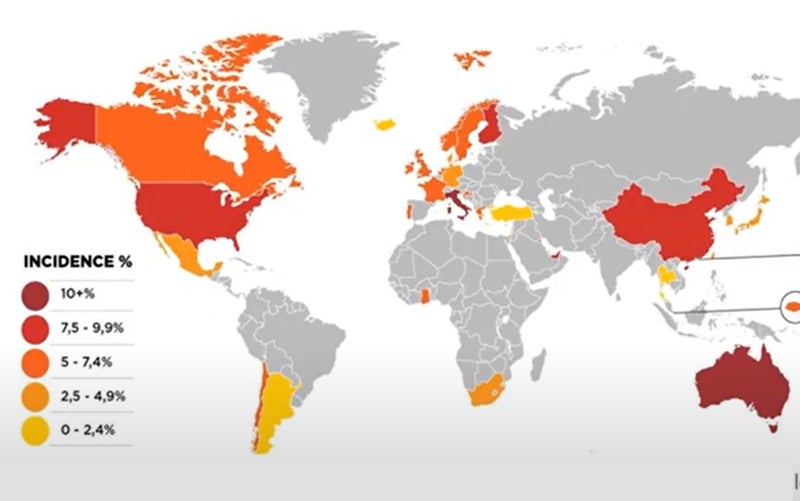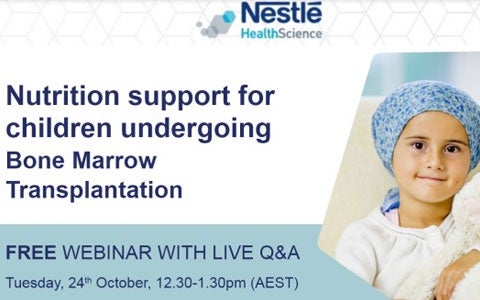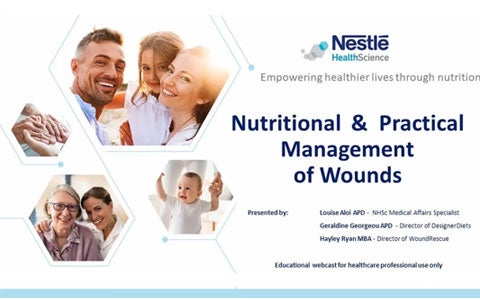On-demand Webinar
Watch an on-demand webinar or catch up on our latest events.
Select a category below to catch up on some of our recorded events
Diabetes
Nonpharmacological interventions for postprandial glucose management" from the NNI Symposium at the 2021 Virtual EASD Annual Meeting -- Postprandial Glycaemic Excursions: Implications for Health and Effects of Nonpharmacological Interventions. This video is presented by Professor Bo Ahren from Lund University
"Health risks associated with elevated postprandial glucose or increased glycaemic variability" from the NNI Symposium at the 2021 Virtual EASD Annual Meeting -- Postprandial Glycaemic Excursions: Implications for Health and Effects of Nonpharmacological Interventions. Based on the 'Ominous Quartet' of glycaemic disorders.
Dysphagia
Dr. Mary D. Litchford discusses the role of protein in preventing protein-malnutrition and sarcopenia, in patients with dysphagia at the European Society of Swallowing Disorders Congress, 2021. This is part of the Nestlé Nutrition Institute Symposium: Protein-Malnutrition, Sarcopenia and Dysphagia. How are they associated?
Dr. Hidetaka Wakabayashi from the Tokyo Women's Medical University Hospital discusses the association between patients with dysphagia, and protein-malnutrition and sarcopenia at the European Society of Swallowing Disorders Congress, 2021. This is part of the Nestlé Nutrition Institute Symposium: Protein-Malnutrition, Sarcopenia and Dysphagia. How are they associated?
Professor Pere Clavé discusses the association between malnutrition, sarcopenia and dysphagia at the European Society of Swallowing Disorders Congress from 2021. This is an introduction to the Nestlé Nutrition Institute Symposium: Protein-Malnutrition, Sarcopenia and Dysphagia. How are they associated?
IDDSI Adoption and Implementation is happening on a global scale. To facilitate and guide the process, the online video titled 'An International Perspective on IDDSI. Implementation and Clinical Practice' aims to help you learn and discover how to implement IDDSI into clinical practice from different perspectives.
This online webinar presented by Dr. Julie Cichero looks at the past, present and 30 years into the future for management of dysphagia. It also highlights the important role that inter-disciplinary collaboration (i.e. between nurses, chefs, doctors, dieticians etc.) plays in the past, present and future of the management of dysphagia.
Enteral Feeding
This podcast which features Dr Emma Ridley, who is a Senior Research Fellow and Senior Clinical ICU Dietitian, discusses the nutrition consequences, typical nutrition intake and barriers and nutritional management of patients in ICU, including strategies to improve nutrition intake post-ICU, particularly for COVID-19 patients.
COVID-19 presents significant challenges, not only in caring for patients, but also the mental health of those looking after the patients. This webinar shares practical evidence based strategies from a health psychologist to help clinical dietitians manage stress, maintain optimism, and cultivate self-compassion during this difficult and uncertain time.
This webinar informs on the emerging research demonstrating the benefits of partially hydrolysed guar gum (PHGG) for a range of health outcomes, including gut health and as a prebiotic. PHGG exerts the nutritional function of a dietary fibre, while being very low viscosity in solution. This webinar explores PHGG and its specific benefits for gut health.
This webinar presented by Dr. Jaci Barrett who is an Accredited Practising Dietitian. informs you of the history and development of the low FODMAP diet, current evidence for treatment for IBS, implementation of the diet as well further application outside of IBS such as its potential use for infantile colic.
This online webinar called 'The Gut Microbiome, Probiotics and Prebiotics 101', presented by Professor Kevin Whelan, translates the basic science of the gastrointestinal microbiome into dietary management in practice. Professor Whelan specifically focuses on Probiotics and Prebiotics and it's role in maintaining a healthy gut microbiome as well as looking at evidence that may support this.
Malnutrition
Malnutrition in the acute hospital setting is now well established. Patients may be malnourished on admission or develop malnutrition while in hospital. During this webinar, A/Professor Sharon Carey will introduce Hospital Acquired Malnutrition (HAM) and how individuals can be identified in the hospital setting. She will deep dive into the importance of documentation, explore the main reasons for HAM and the requirements for reporting
In this webinar, Dr Luliano who is a Senior Research Fellow in the Department of Medicine at the University of Melbourne, explores the nutrition based approaches that can be utilised to address the very common issue of falls and fractures in the aged care setting and the relationship of these approaches to the revised quality standards in aged care.
This online webinar presented by Professor Rene Rizzoli aims to highlight the role of proteins in older adults' malnutrition - proteins of bone health. This online webinar was presented at IAGG-ER Digital Forum on Aging. It also includes a number of recommendations on the optimal amount of dietary protein intake as well as oral nutritional supplements to take post-op to help improve dietary intake and reduce the risk of complications.
This online webinar presented by Professor Rene Rizzoli aims to highlight the role of proteins in older adults' malnutrition - proteins of bone health. This online webinar was presented at IAGG-ER Digital Forum on Aging. It also includes a number of recommendations on the optimal amount of dietary protein intake as well as oral nutritional supplements to take post-op to help improve dietary intake and reduce the risk of complications.
This online webinar presented by Professor Alfonso Cruz-Jentoft aims to highlight the role of proteins in older adults malnutrition - Proteins and Muscle Health. Presented at the International Association of Gerontology and Geriatrics for the European Region Digital Forum on Aging. The webinar also highlights the conceptual crossroads that may be crossed when we are malnourished or have low muscle mass.
This webinar presented by Dr. Doug Padden Jones, titled 'Translating Protein Research into Practice: Optimising Muscle Mass', discusses the consequences of sub-optimal dietary protein on muscle mass, strength and health and also critically evaluates the application of current dietary protein recommendations.
In this webinar, clinical dietitian Steph Yap and community dietitian Kate Dacanay discuss the different pathways they use to manage malnourished patients in their respective settings, focusing on optimal transition from hospital to community and reflect on the challenges that COVID-19 has presented in their work.
Obesity
We heard from Associate Professor Samantha Hocking from the Royal Prince Alfred Hospital. Samantha talked us through new research conducted by the University of Sydney, Diabetes Australia and five NSW Primary Health Networks on the current evidence for diabetes remission and the positive outcomes of this.
In this webinar, Dr. Mehal will discuss the pathogenesis of and NASH, proposed new terminology for Non-Alcoholic Fatty Liver Disease(NAFLD) and current treatment recommendations with a focus on the impact of weight loss on outcomes. Dr. Mehal also provides an overview of the prevelance of NAFLD from a global perspective.
This webinar presented by Dr. Michelle Harvie discusses the application and review of current literature on low energy restricted diets as part of intermittent fasting as as an alternative to weight management and type 2 diabetes. Dr Harvie also discusses the MIDDAS study in respect to it's design as well the findings of the study.
This webinar from the 81st American Diabetes Association presented by Dr. Ian J.Neeland and Professor Roy Taylor, discusses the current and emerging novel non-pharmacological approaches to the prevention and remission of type 2 diabetes, weight management, and CV risk reduction. This webinar also explores how visceral fat plays a role in the pathogenesis of obesity and co-morbidities.
Recent years have seen a surge in popularity of eating patterns involving intermittent fasting as a way to manage and optimise health. This webinar reviews the health and physiological benefits of intermittent fasting, exploring the two most popular forms of intermittent energy restriction (The 5:2 Diet and Alternate-Day fasting).
This podcast, which features psychologist Glenn Mackintosh, discusses the psychological aspects to consider when a client is trying to lose weight, such as what to consider when a client walks into a clinic for weight loss advice, importance of support from a professional and how to help clients normalise lapses and relapses. This podcast was hosted and created by Dietitian Connection.
This podcast, which features dietitian and researcher Gabrielle Maston, explains what VLEDs are and tips and tricks to improve the compliance of patients on a VLED. It discusses the results of the DiRECT trial and the role of VLEDs in diabetes remission. It explores why dietitians are hesitant to prescribe VLEDs and how they can improve their confidence in recommending VLEDs to patients and clients. This podcast was hosted and created by Dietitian Connection.
Oncology
A webinar presented by Dr. Nicole Kiss on Malnutrition and Sarcopenia in oncology discussing what it's impact is and what we can do. This webinar provides information such as context around symptoms of Malnutrition and Sarcopenia such as nausea and vomIting as well as ways to manage and control these symptoms.
Paediatric Nutrition
In this webinar, Paediatric Immunologist and Allergist Dr Annaliesse Blincoe and Consultant Dietitian Anna Richards will take you through a case study of a paediatric patient’s journey through food allergy, focusing on cow’s milk protein allergy from a medical and dietetic perspective.
This presentation discusses the importance of diet diversity (including food allergen diversity) with early introduction of allergenic foods between 4 to 6 months of age as part of a complementary diet recommended by the majority of medical and scientific societies worldwide, including EAACI.
This presentation discusses existing and new evidence supporting early and regular introduction of diverse food allergens at low doses. Of note, protein mixtures appear to show superior induction of an anti-allergenic state versus single foods, likely mediated by improvement in key biomarkers associated with sensitization.
Presented at Pediatric Allergy & Asthma Meeting (PAAM) Digital 2021. This is 20-year follow-up data from the GINI study showing that early nutritional intervention with extensively hydrolyzed casein formula (eHF-C) or partially hydrolyzed whey formula (pHF-W) when compared to cow’s milk based formula exerts a preventive effect on both eczema and allergic airway manifestation that endures until adulthood.
In this webinar, Jodie Bartle, Paediatric Dietitian, Oncology/Immunology at The Royal Children's Hospital Melbourne, takes us through the findings of her clinical research and how she arrived at a Nutrition Feeding Algorithm for Children and Adolescents undergoing Haematopoietic Stem Cell Transplantation (HSCT), to assist clinicians to make objective and consistent enteral feeding decisions.
Wound Care
A comprehensive guide focusing on the value of nutrition in wound management, specifically written for health care professionals. This guide aims to provide simple advice on the role of nutrition in wound healing for healthcare professionals involved in the management of wounds; provide practical guidance on when and how to implement nutritional support to help promote wound healing and summarise the evidence for the relationship between nutrition and wound healing.
An informative webcast from highly experienced and regarded dietitian Geraldine Georgeou (APD) and wound clinical consultant Hayley Ryan on the nutritional and practical management of wounds in everyday clinical practice. The webcast explores various topics such as the role of arginine in healing, the cost benefits of ARGINAID for faster wound healing in the institutional setting as well as the value and need for close collaboration with dietetics and wound care specialist nurses.
Hear from Hayley Ryan, Director of Wound Rescue and Acting CEO of Wounds Australia, as she discusses the importance of nutrition in the management of wounds. This includes the requirement for sufficient protein and arginine - a conditionally essential amino acid which supports wound healing by promoting protein synthesis, nitric oxide production and collagen formation.
